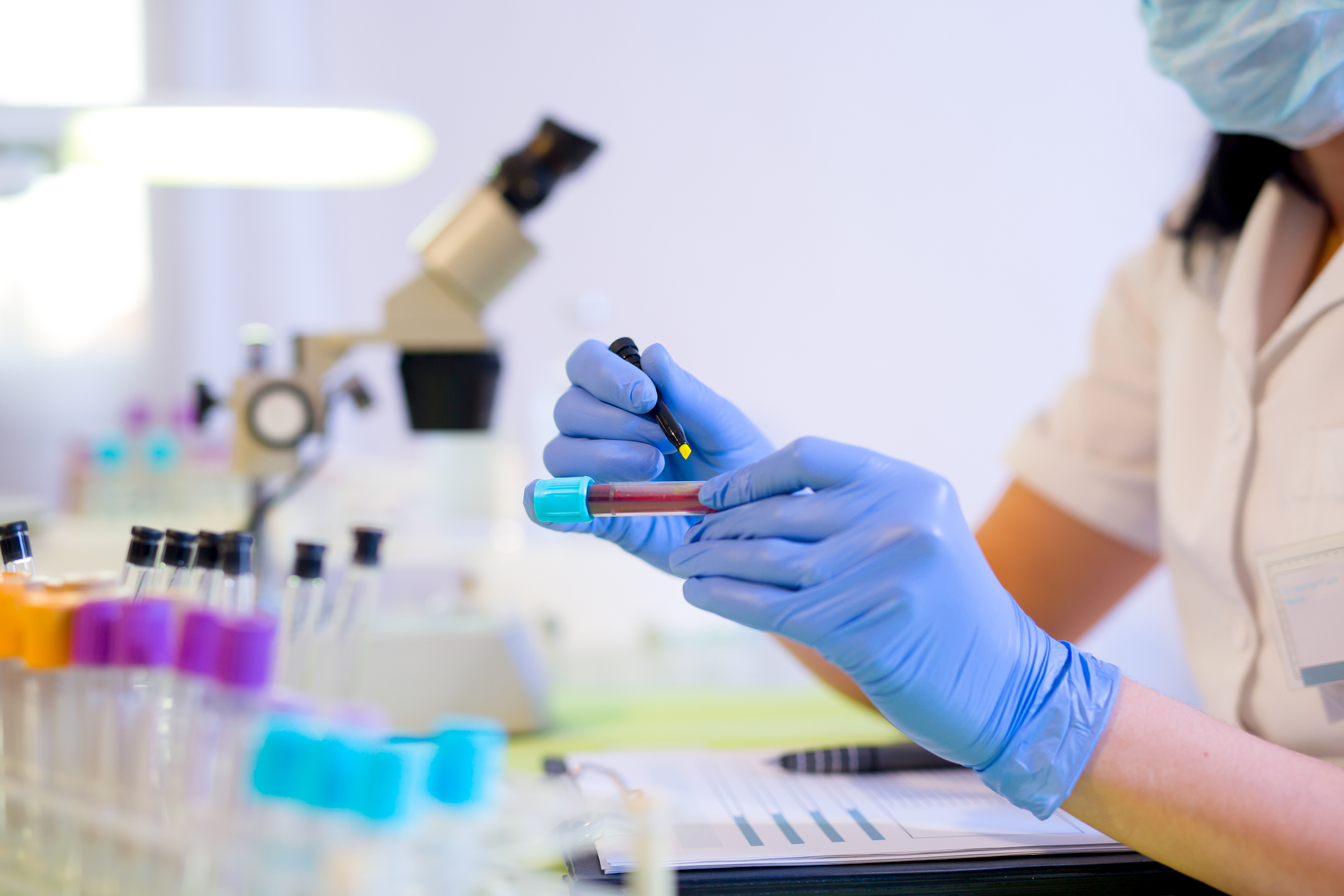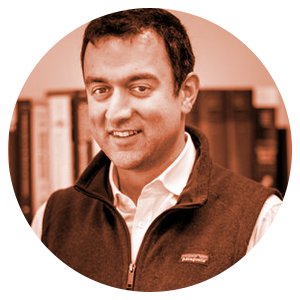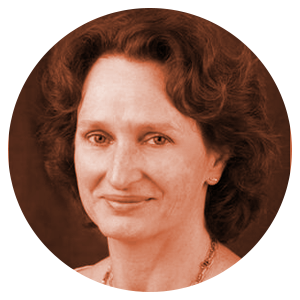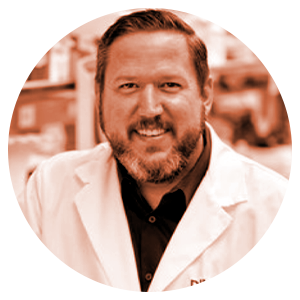Neil Kumar, Ph.D.
CEO and co-founder of BridgeBio Pharma
Dr. Kumar is the CEO and co-founder of BridgeBio Pharma, a company focused on developing and delivering medicines for rare, genetic diseases.
Prior, Neil has served as CEO of Eidos Therapeutics, Inc., interim Vice President at MyoKardia, Inc. and Principal at Third Rock Ventures.
Yael Weiss, M.D, Ph.D.
CEO of Mahzi Therapeutics
Dr. Weiss is CEO of Mahzi Therapeutics, a biotech company that specializes on developing therapies for patients with rare genetic neurodevelopmental disorders.
Prior, Dr. Weiss was VP of Business Development at Ultragenyx; Executive Director at Merck, Director of Medical Affairs and Business Development at Genzyme Israel, and Vice President at Columbine Ventures.
Dr. Karen E. Malone, PhD
Director at Leiden Analytics
Karen has 15 years experience in the biotech/pharma industry. She completed her graduate studies at the University of Southern California, and the Cleveland Clinic, department of Neurosciences. Going on to hold scientific and business development positions at Janssen Pharmaceuticals and ProQR Therapeutics.
Dr. Malone combines her scientific and business expertises to support development and commercialization of therapies targeting rare genetic diseases to drive robust portfolio strategies.
Floortje van Nooten, PhD
VP Market Access & Commercialization Expert
Floortje has 20 years of experience in the life sciences industry. She has been involved in bringing exciting new medicines to market from early pipeline to post launch, providing market access, pricing, heor, outcomes as well as commercial support. She recently held a role in market access and commercialization at Terebellum. Previously, she served as Senior Director of market access at ProQR, as well as Executive Director Market Access at BioCryst.
Orrin Devinsky, M.D.
Neurosurgeon, NYU Langone, Chief of Service, NYU Epilepsy
Dr. Orrin Devinsky is a leading neurologist and neurosurgeon at NYU Langone and professor of neurology, neurosurgery, and psychiatry at the New York University School of Medicine. His epilepsy research includes sudden unexpected death in epilepsy (SUDEP), cannabinoids, phenome-genome correlations, autism, neural markers and imaging, therapeutic electrical stimulation, quality-of-life, cognitive and behavioral issues, and surgical therapy.
Devinsky received his medical degree from Harvard Medical School, founded Finding A Cure for Epilepsy and Seizures (FACES) and co-founded epilepsy.com. Devinsky was a lead neurologist in CBD clinical trials for the treatment of epilepsy.
Robin Kleiman, Ph.D.
Vice President, CNS Biology at Alkermes
Neuroscience drug discovery leader with history of novel target identification and development.
Dr. Kleiman has contributed to the discovery and development of multiple novel clinical candidates and has worked at companies that span the big pharma, start-up and biotech industries. She was one of several founding members of the Pfizer Neuroscience Phosphodiesterase platform team that produced multiple clinical candidate molecules, 3 first-in-human clinical trials for distinct and completely novel mechanisms followed by 2 proof-of-concept clinical trials.
Before joining Alkermes, Kleiman Senior Director at Biogen and was Head of Preclinical Research at Boston’s Children’s Hospital Translational Neuroscience Center leadership team and faculty at Boston’s Children’s Hospital.
Kiran Reddy, M.D.
Blackstone Life Sciences, Former CEO Praxis
Dr. Reddy is President & CEO of Praxis Precision Medicines, a Cambridge, Massachusetts based biotechnology company operating in stealth mode. Formerly, he was a Venture Partner at Clarus where he focused on new company formation and at Biogen as part of the Corporate Strategy leadership team.
Reddy was part of the founding team and interim Chief Business Officer for SAGE Therapeutics through its IPO, and co-inventor of SAGE-547 the Phase 3 program for the rare epilepsy disorder refractory status epilepticus. He was part of the team that launched Foundation Medicine, and he has served as a Board Observer for Alnara pharmaceuticals, Rhythm pharmaceuticals, and PanOptica pharmaceuticals. Reddy holds MD and MBA degrees from Georgetown University, and is a board certified neurologist; he has authored several peer-reviewed scientific papers in the field of neuroimmunology and neurodegenerative diseases.
Aris Economides, Ph.D.
Vice President of Research, Regeneron Pharmaceuticals
Dr Economides leads Genetic Research at Regeneron which includes Genome Engineering Technologies and Skeletal Diseases TFA. He is a co-inventor of the Cytokine Trap technology that led to the development of the IL-1 trap, a currently approved biologic drug (ARCALYST™). He is also a co-inventor of the VelociGene® technology, that has led to the development of VelocImmune®, a method for the generation of all-human antibodies in mice.
More recently, Economides has been spearheading the development of new methods for the generation of transgenic mice using BAC as transgene vectors, and has also pioneered a new method for generating conditional alleles.
Hourinaz Behesti, Ph.D.
CEO Hebbian Bio
Hourinaz Behesti is a Developmental Neurobiologist with a passion for translating science for the benefit of patients. Dr Behesti joined the FOXG1 Research Foundation in 2017 and has served as our Chief Scientific Officer. She is now the founder of Hebbian Bio, a drug target discovery company with the mission to develop treatment options for the debilitating features of autism.
Xilma Ortiz-Gonzalez, M.D., Ph.D.
Pediatric Neurologist, CHOP, Neurology Instructor, University of Pennsylvania
Dr. Ortiz-Gonzalez is a pediatric neurologist at Children’s Hospital of Philadelphia (CHOP) where she sees patients with FOXG1 Syndrome as well as those with numerous other genetic mutations.
Ortiz-Gonzalez’s research focus is on mitochondrial disorders often present in childhood with systemic disease, including cardiac, skeletal muscle, visual and neurologic symptoms. She is interested in using iPSC technology to generate in vitro disease models to understand cardiac and neural phenotypes from patients affected with mitochondrial diseases and has published numerous articles on the topic.
Gordon Fishell, Ph.D.
Scientist, Broad Institute; Professor, Harvard Medical School
Dr. Fishell received his Ph.D. in neurobiology from the University of Toronto-Neurobiology Research Group, and works on the study of inhibitory interneurons in the brain and other deep, foundational brain sciences.
Fishell recently joined the Broad Institute, where the CRISPR cut-and-paste gene editing method was discovered, and is Professor at Harvard Medical School. He was formerly a Julius Raynes Professor of Neuroscience and Associate Director of the NYU Neuroscience Institute. Fishell’s research interests are focused on the Molecular Genetics of Regional Patterning in the Mammalian Telencephalon, and Molecular Control of Neural Stem Cell Proliferation and Specification. He has published over 100 original papers, and five books.
Heather Olson, M.D., M.S.
Neurologist, Boston Children's; Neurology Instructor, Harvard Medical
Dr. Olson completed all of her post-graduate medical training in Boston including training in Pediatric Neurology, Epilepsy and Clinical Neurophysiology and Epilepsy Genetics. Since joining the faculty at Boston Children’s Hospital in 2013, she works as a clinician and clinical researcher with a focus on Neurogenetic disorders and Epilepsy.
Olsen has recently opened a FOXG1 clinic at Children’s Hospital Boston, and is assisting with the creation of a sister clinic at Children’s Hospital Stanford. She is also director of the CDKL5 Center of Excellence, a combined clinical and research program.
Ritu Lal, Ph.D.
CEO, GEn1E Lifesciences
Dr. Lal is CEO and Co-founder of GEn1E Lifesciences Inc (www.gen1elifesci.com). GEN1E is a next-gen biotech company accelerating cures for inflammatory and age-related diseases
She has over 20 years of experience in Biotech/Pharma companies. Her passion is to bring healthcare products to patients in a cost-effective and efficient manner. In her role as a Senior Executive she has led Preclinical and Clinical Development teams. She has taken compounds from Discovery to Regulatory Approval and have filed more than 15 Investigational New Drug Applications (IND) in disease areas of neurology, inflammation, virology, pain and oncology. Two compounds have received New Drug Application (NDA) approvals from the US FDA and Ministry of Health and Welfare, Japan (Kaletra for the treatment of HIV and Horizant (Regnite in Japan) for Restless Legs Syndrome (RLS) and Post Herpetic Neuralgia (PHN)).
Dr. Lal has a doctorate in Pharmaceutical Sciences and Pharmacology from the University of Maryland and a Masters degree in Pharmacology from University of Arizona. Dr. Lal has over 60 publications, book chapters and presentations. She has also received a Master’s in Management from Stanford University’s MSx (Sloan) Program.
Mark Pykett, Ph.D.
CEO, Myrtelle
Mark Pykett serves as Chief Executive Officer of Myrtelle. He joined the company in 2021 at its inception, bringing over 25 years of pharmaceutical industry executive management experience. Prior to Myrtelle, Mark was Chief Scientific Officer at PTC Therapeutics where he oversaw the company’s discovery, research, and translational activities. Before PTC, he was CEO of Agilis Biotherapeutics (acquired by PTC), CEO of Navidea Pharmaceuticals, President and Chief Operating Officer of Alseres Pharmaceuticals, President of CyGenics and CEO of Cytomatrix (acquired by CyGenics). He is or previously was a board member of both public and private companies, including the biotech companies, and the not-for-profit organization HealthBuilders, developing healthcare infrastructure in Rwanda.
Mark holds a BA from Amherst College, a VMD and PhD from the University of Pennsylvania, and an MBA from Northeastern University. He also completed post-doctoral work at the University of Pennsylvania and Harvard University. Mark has dedicated a substantial portion of his career to advancing innovative medicines for rare diseases. He counts among his most rewarding experiences the approval of Evrysdi for spinal-muscular atrophy (SMA), the development of the gene therapy Upstaza for AADC deficiency, the approval and commercial launch of Lymphoseek for cancer, and the scientific innovations Altropane for Parkinson’s disease and the stem cell immunotherapy platform CytoMatrix. Mark is passionate about bringing novel therapies to patients who all too often are overlooked or left behind in the quest for new cures.
Dr Nadia Bahi-Buisson, M.D., Ph.D.
Pediatric Neurology, Necker Enfants Malades University Hospital, Paris
Dr Bahi-Buisson is a pediatric neurologist and professor at Necker Enfants Malades University Hospital in Paris, where she conducts the rare disease program on Rett syndrome and brain malformation. She is also part of the group "Genetics and Cerebral cortex development" (A Pierani) of the Imagine Institute at Paris Descartes University.
Bahi-Buisson is focused on understanding the cellular and molecular mechanisms of brain development, especially neurogenesis, and neuronal migration. Her main goal is to understand the molecular basis of Malformations of Cortical Development which are important causes of intellectual disability and account for 20-40% of drug-resistant childhood epilepsy. Her group conducts integrated multidisciplinary studies involving cellular and molecular biologists, foetal pathologists and radiologists. They use a wide range of approaches including genetics, biochemistry and cellular biology to better understand the signalling pathways involved in these processes and how their dysregulations can lead to pathologies.
Bahi-Buisson holds a doctorate from Paris V University.
.
Dr Scott Dindot, Ph.D.
Assistant Professor, Texas A&M College of Medicine
Dr. Scott Dindot specializes in understanding the molecular, genetic and epigenetic mechanisms underlying phenotypic variation and disease. His lab uses multifaceted genetic, molecular and cell biological tools as well as genetically engineered model organisms and domestic animal models to understand the interplay between genetics, epigenetics and gene regulation. One major area of focus for Dindot has been Angelmans Syndrome.
Dindot completed his postdoctoral studies at Baylor College of Medicine.
Justin To
CEO at QED Therapeutics, a BridgeBio company
Justin is the CEO of a new BridgeBio company, QED Therapeutics. Previously Justin was Chief Operating Officer of BridgeBio Gene Therapy (BBGT). He served as Vice President of Business Development and Operations at BBGT. He is passionate about developing novel gene therapies for diseases with significant unmet need. Justin has an AB in Chemistry, Magna Cum Laude with Highest Honors, from Harvard College.
Rodney Samaco, Ph.D.
Assistant Professor of Molecular and Human Genetics at Baylor College of Medicine
Dr. Rodney Samaco is an Assistant Professor of Molecular and Human Genetics at Baylor College of Medicine (BCM) and an Investigator at the Jan and Dan Duncan Neurological Research Institute at Texas Children’s Hospital (TCH). His research program seeks to identify disease- and translationally-relevant endpoints in rodent models for rare genetic CNS disorders that may serve as actionable biomarkers and outcome measures for preclinical studies. As an advocate for team science, Dr. Samaco serves the broader stakeholder community as the Co-Director of the Eunice Kennedy Shriver Intellectual and Developmental Disabilities Research Center (IDDRC) at BCM, Director of the BCM IDDRC and TCH Neurobehavioral Core Facilities, and academic lead of the behavioral phenotyping component of BCM’s Knock Out Mouse Project, part of the larger goal of the International Mouse Phenotyping Consortium to create and characterize null and variant alleles of protein-coding genes of the mouse. Through these endeavors he is actively engaged in fostering collaborations with academic, non-profit and industry partners to conduct large-scale behavioral evaluations and preclinical studies using rodent models.



















